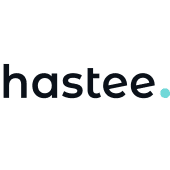
Four tips for wellbeing in the new workplace
With productivity and profits affected, businesses might not be considering wellbeing as much as how to move fast and regain ground, from a quarter that was terrible for much of the economy. There are some under-used but patently obvious wellbeing tips that will help boost productivity, reduce employee turnover and increase engagement that are well worth looking into.
With a little research there are some fun and fundamental ways business managers can boost wellbeing and engagement even in the most challenging of times - and perhaps because the times are challenging it’s all the more reason such steps need to be taken.
Any businesses that may have shied away from considering wellbeing programmes will have to know that real engagement does mean some openness and honesty for staff and managers alike to open up at work - but just being an open and honest place to share feelings will itself help staff wellbeing.
1) Financial wellbeing advice - for mental health
There are multiple factors at play in why people make certain financial decisions. From an outside perspective it may seem unusual to see someone take money out each day, but remember, to do so might enable them to avoid going into a more costly overdraft each day, or require a payday loan. Access to this kind of liquidity is a little helping hand when needed.
Hastee’s last Workplace Wellbeing Study showed a widespread reliance on high-cost credit at all levels of the workforce, and that financial stress is true for people earning any amount. In fact, the most financially stressed were those earning £50,000-£150,000 per year. So the amount of money earned is not necessarily an important factor on a person's individual financial stress.
Advice and support on finances doesn’t have to revolve around salary amounts. Instead understanding and pointing the way to guidance around the use of credit, liquidity, and timing could offer the tools to reduce employee financial stresses - and an added bonus, happy staff means increased productivity. Win win.
2) Changing pay structures - a big impact on retention and reducing stress
Hastee's research discovered that younger workers are the most likely to be unable to make it into work because they didn't have flexible access to their earnings. This was the case for 60% of 18-24-year-olds, 52% of 25-34-year-olds and 51% of 35-44-year-olds in 2019, highlighting that those who have had to miss work would have benefited from on demand access to their earned wages to help them cover travel costs then and there, rather than missing work completely or using high cost credit to do so.
Financial stress deeply impacts the workforce but employers are widely unaware of this issue because generally neither workers or managers like to talk about their personal finance woes.
Something as simple as allowing employees to draw on their earnings before pay day can help them manage their money without needing to use forms of credit like overdrafts or loans - with all the interest, charges, and fines that can follow. The solution is called earnings on demand. Managers should talk to staff about liquidity. Would earnings on demand and the ability to change when money gets into employees’ pockets help them? Would it enable them to avoid credit when they don’t need to, or make purchases for their lifestyle without resorting to credit card debt, could it keep them off high-cost loans?
There’s no need to pry into private lives, but there can be a level of understanding. By offering benefits like earnings on demand employers can create greater liquidity without even impacting on the business cash flow, changing contracts, or necessarily integrating new IT - depending on the supplier.
3) Life coaching - for all, not just the famous
Coaching is the secret to so many successful business people as well as sportspeople and celebrities of all kinds. It’s much more of an investment in staff but where high performers are considered for advancement it can help them live up to expectations and either build on strengths to become powerhouses in an area, or mitigate areas of weakness. Coaches are not something most of us hear about that often, but if they help athletes dig deeper and improve form and speed, or actors nail an accent or stunt - and they help boardroom executives improve speaking, strategic thinking, and communications - then coaching can help all of us.
In fact Gallup research suggests that employees want more coaching and less managing. It discovered that the best bosses were offered more coaching to support employee improvement.
4) A change of scene and pace - for physical health and mental recuperation
This one is the most simple to plan around. Merely promoting exercise, perhaps offering stand-up desks, encouraging walking meetings and the like. The best thing about promoting most physical activities for health is that they also tend to help happiness and stress-reduction too. Help employees to change the scenery and blow out the cobwebs.
Psychological and physiological research suggests that exercise is a great stress reliever and by conducting regular exercise mood can be enhanced even beyond that offered by anti-depression medication. Certainly something to think on, since it’s within the reach of just about everyone in the workplace to become more active.
All in all, there are many paths to take for strong wellbeing programmes that will help staff, but the core features are to help improve physical and mental health so your staff can work and live healthier in their job and outside it too. Enhanced productivity and decreased retention follow when approaches are taken forward in the right way.


